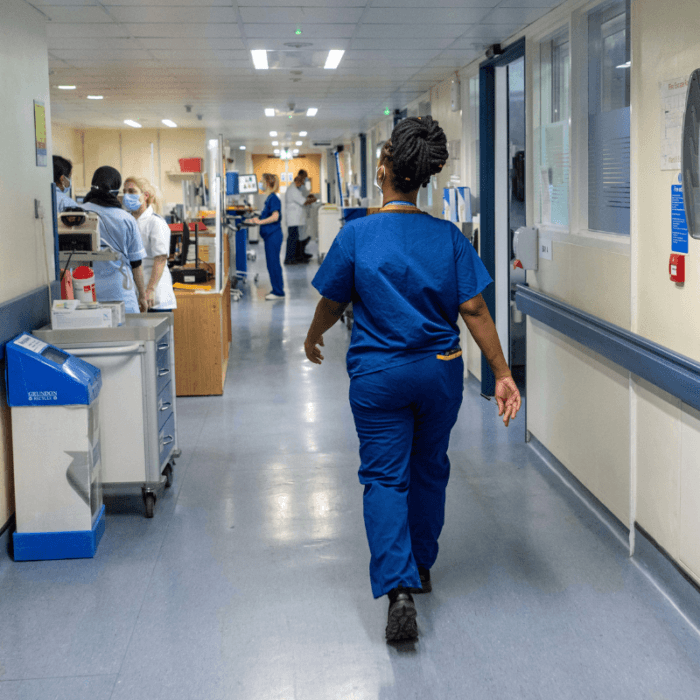A think tank has predicted that if current trends continue, the number of people economically inactive due to sickness could hit 4.3 million in five years—an increase of more than 50 percent from 2.8 million today.
This translates to an estimated lost tax receipts totalling almost £5 billion, researchers said.
The IPPR’s Commission on Health and Prosperity looked into the interaction between health and the economy, and found that the UK’s worsening public health “is linked to our faltering economic performance.”
Report authors said that the COVID-19 pandemic and austerity had led the UK to become the literal “sick man of Europe,” with the number of people with a long-term condition rising.
“In fact, health is worsening throughout the life course—bringing real challenges for children, adolescents, working-age adults and those who have retired,” they wrote.
‘Spiralling’ Inactivity
The report comes after the new Labour government pledged to tackle growing levels of economic inactivity due to illness, with the UK being the only country in the G7 whose employment and inactivity rates have not returned to pre-lockdown levels.Work and Pensions Secretary Liz Kendall said at the Labour Market Advisory (LMA) board last week that “spiralling inactivity is the greatest employment challenge for a generation, with a near record 2.8 million people out of work due to long-term sickness.”
Paul Gregg, chairman of the LMA board, said that the labour market is facing “a deep-seated set of challenges,” noting that the UK has seen “a sharp increase in economic inactivity and long-term sickness, most notably in our young people post-pandemic.”
Reform the NHS
The IPPR’s commission called for the government and NHS to take a more preventative approach to health care. Some of the proposals include establishing neighbourhood health centres across the country, which would provide a “one-stop shop” for primary care, diagnostics, mental health, and other health services focused on prevention.Authors also suggested a “right to try” so that those on disability benefits can try going back to work without any risk of them losing their government support. The IPPR also suggested new or further taxes on “health polluters,” like alcohol, tobacco, or so-called unhealthy foods.
Lord Ara Darzi, former health minister and co-chairman of the Commission on Health and Prosperity, said: “Our Commission was among the first to identify the rising sickness as a major and immediate post-pandemic fiscal challenge. Now, as the government sets up its health mission, our final report provides a ready made policy vision for a new approach to public health.”
Findings included that cancer care in the UK had fallen behind other countries, waiting times for hospital procedures had ballooned in 15 years, and waiting times at A&E have caused thousands of extra deaths annually.
Commissioned by the Secretary of State for Health and Social Care Wes Streeting, the review sets out the themes for the government to incorporate in its 10-year plan to reform the health service.
Prime Minister Sir Keir Starmer said the NHS needed to reform, because taxpayers could not afford to put any more money into it.
“So, hear me when I say this, no more money without reform,” Starmer said.
Responding to the IPPR’s findings, a Department of Health and Social Care spokesperson said, “This Government will shift the focus of the NHS from just treating sickness to preventing it in the first place.”







